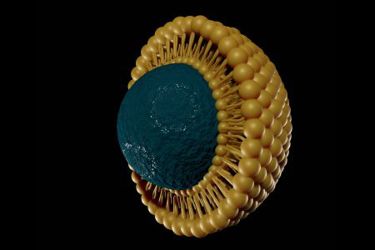Studying Liposomes In The Nano DSC
By Colette Quinn, Ph.D., Applications Scientist, TA Instruments

Liposomes, micelles, and nanospheres are key tools in drug delivery, with advanced modifications enhancing their selectivity and effectiveness. The Nano Differential Scanning Calorimeter (Nano DSC) plays a crucial role in studying liposome thermodynamic properties by analyzing heat-induced phase transitions. These transitions, such as the midpoint temperature (Tm), provide insights into liposome composition, stability, and dynamics.
Using DPPC as a standard, the Nano DSC demonstrates its precision in identifying pre-transition and main transition phases, with results aligning with literature values (Tm: 36.4°C and 41.5°C, respectively). A critical factor in liposome analysis is the meta-stable state of prepared samples, where reheating stabilizes the material and provides accurate Tm readings.
Cholesterol, a common additive, significantly affects liposome properties by increasing membrane fluidity and permeability. At temperatures above Tm, cholesterol restricts acyl chain freedom, while at lower temperatures, it prevents ordered packing. The Nano DSC captures these effects, showing how cholesterol alters phase transitions and thermogram profiles.
The sensitivity of the Nano DSC, with baseline reproducibility at 28 nanowatts and short-term noise at 15 nanowatts, enables the analysis of small material quantities and wide transitions. This makes it a powerful tool for liposome characterization, supporting drug delivery innovations by providing detailed thermodynamic insights. With its precise capabilities, the Nano DSC enhances understanding and optimization of liposome-based therapies.
Get unlimited access to:
Enter your credentials below to log in. Not yet a member of Bioprocess Online? Subscribe today.
